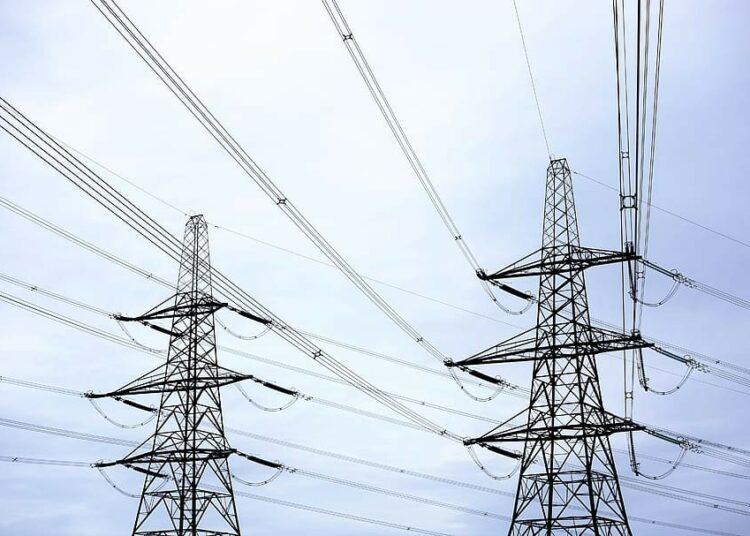President Bola Tinubu signed the new 2023 Electricity Bill into law to break the federal government’s monopoly of the power sector, especially in the sphere of electricity generation, distribution, and transmission.
The Act removes electricity business from the Exclusive List of the Nigerian Constitution and gives the states the power to generate, distribute and regulate the power market in their domains.
The law also allows states to regulate their electricity markets by issuing licences to private investors who can operate mini-grids and power plants within their jurisdiction.
It further empowers states to manage their own electricity markets, allowing them to address their unique energy needs, reduce outages, and attract investment.
Added to this is the provision that investors can construct, own or operate an undertaking for the generation of electricity not exceeding one megawatt in aggregate at a site, or an undertaking for the distribution of electricity with a capacity not exceeding 100 kilowatts in aggregate at a site, or such other capacity as the State Electricity Regulatory Commission (SERC) may determine, without a licence.
Had the states implemented the law with the urgency it deserves, power plants would have been established to ensure a steady power supply to businesses and residences in the South-South geopolitical zone, where gas is abundant.
Similarly, in the North, which has abundant hydropower and sunlight, the states would have used these resources to provide adequate and affordable electricity to industry operators and the people.
The Transmission Company of Nigeria (TCN) recently disclosed that the country recorded 227 total and partial national grid collapses between 2010 and 2024. Last year accounted for 12 of these grid failures, translating to an average of one grid collapse per month.
The 2023 Electricity Act is designed to address this unsavoury and avoidable state of system collapse and dependence on the central government to solely provide power for a large country like Nigeria.
Unfortunately, while the clamour for true federalism has been persistent and loud, the governors, who accused the federal government of holding on to much of the country’s resources, are either unprepared or dragging their feet on implementing this critical law.
President Tinubu punctured the governors’ usual excuses that there is no money to drive development at the state level because the Presidency controls the lion’s share during a recent meeting with them on local government autonomy.
The president pointedly told the governors that they are the most important link to Nigeria’s prosperity and development.
According to him, the federal government accounts for about 30 to 35 percent of the allocated revenue, while the rest goes to the states. So, what happens to these allocations to the states? In terms of real governance, what are the states doing?
The health system in the states has collapsed. Most Nigerians now patronise tertiary health institutions owned by the federal government. Education is in such a pitiable state that most governors send their children abroad for primary and secondary school. The list is endless.
To this newspaper, the federal government has played its part by liberalising the generation and distribution of electricity. That a staggering 27 states have failed to implement the legislation is disturbing and unacceptable in this present dispensation.
In line with the provisions of the Act, the states (governors) must begin immediate collaboration with the Nigerian Electricity Regulatory Commission (NERC) and their SERCs to ensure coordinated oversight and save their citizens from the ordeal occasioned by frequent outages and national grid collapses.
They should cash on decentralising power generation and distribution to stimulate development in their states.
The governors’ inaction is indeed stifling progress. The Act’s benefits are clear. By developing various sources of electricity, states can reduce their dependence on the federal government and take charge of their development.
This, in turn, can attract investors, create jobs, and improve the overall quality of life for the citizens. However, the state governors’ attitude towards the law has been lukewarm at best, and their inaction is depriving their people of these benefits.
It is time the governors woke up and take responsibility for their states’ development. The days of depending on the federal government are gone, and the states must take charge of their electricity generation and distribution.
We also charge the state governors to establish their own SERCs to oversee the generation and distribution of electricity within their jurisdictions.
They must develop various sources of electricity, including renewable energy sources, to reduce their dependence on the national grid. Additionally, they should create an enabling environment for investors to participate in the electricity sector, providing incentives and support for private sector players.
The time for excuses is over. It is time for the state governors to take action and unlock the potential of the 2023 Electricity Act. The future of Nigeria’s development depends on it.
We’ve got the edge. Get real-time reports, breaking scoops, and exclusive angles delivered straight to your phone. Don’t settle for stale news. Join LEADERSHIP NEWS on WhatsApp for 24/7 updates →
Join Our WhatsApp Channel










